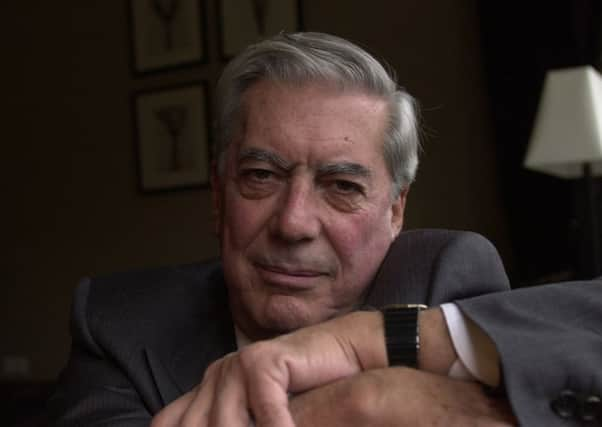Book review: Notes on the Death of Culture by Llosa


Notes On The Death Of Culture – Essays on Spectacle and Society
Mario Vargas Llosa
Faber & Faber, £20
When a writer of the stature of Mario Vargas Llosa, winner of the 2010 Nobel Prize for Literature, brings out a book with a title as alarming as Notes On The Death Of Culture, it seems a sensible precaution to listen to what he has to say. After all, if culture really is on its last legs, we’d better start figuring out what to do when it’s gone – and by “we” I don’t just mean people employed by the culture sections of weekend newspapers, but all of us.
Advertisement
Hide AdFortunately, based on Llosa’s facile and at times rather sloppy analysis, there doesn’t seem to be much cause for alarm. His main complaint seems not to be that culture is dead, or even dying, but that it is not exactly as he would like it to be. Setting out his stall in the second of the essays that make up this book, ‘The Civilisation Of The Spectacle’, he bemoans the fact that the move to make culture accessible to all (“a commendable philosophy” he notes, as if that really needed noting) has had “the undesired effect of trivialising and cheapening cultural life, justifying superficial form and content in works on the grounds of fulfilling a civic duty to reach the greatest number.” It’s the plebs’ fault, you see? They’re not very bright, most of ’em, so to fulfil their social obligations artists are now forced to create stupid work in order to make themselves understood.
There’s nothing wrong, he says, with culture being “a pleasing pastime” (a relief for those of us who enjoy pleasure) “but if it is just this, everything included under the term becomes equal and uniform; a Verdi opera, the philosophy of Kant, a concert by the Rolling Stones and a performance by the Cirque du Soleil have equal value.”
What we need, Llosa believes, are respected arbiters of taste – critics who sift through the silt of culture and deliver unto the rest of us the nuggets. Trouble is, he seems unable to agree with himself about how much power these cultural gatekeepers still wield. One minute he’s suggesting culture is going to the dogs because “critics are a dying breed, to whom nobody pays attention unless they turn themselves into a form of entertainment”; the next, in a discussion of the art world, he argues contemporary art is going to the dogs because critics have become “more important than artists” in the sense that we have reached a point where their theories have come to “justify” works of art, rather than the other way around. So which is it so be? Are critics pointless and ignored? Or are they more significant than the artists they write about? Surely not even a Nobel Prize gives Llosa the right to have it both ways.
To be fair, there is more to this book than a grumpy intellectual complaining about how difficult it is to navigate through the “tangled jungle that contemporary culture has become”. (Although isn’t a tangled cultural jungle more interesting than a manicured cultural lawn?)
Llosa’s idealistic attempts to rescue the reputation of the now deeply unfashionable thinker Lionel Trilling, who believed in the enriching and improving power of the arts, feel like a breath of fresh air. He is good, too, on how our fixation with celebrity gossip has impacted on our cultural values, although his tirade about Hello! magazine takes on a somewhat ironic flavour following the recent revelation – on the cover of Hello!, no less – that he has left his wife of 50 years to shack up with Enrique Iglesias’s mum.
This is a rather depressing book, not because it delivers a depressing message, but because it shows a clever man struggling to make sense of the world around him, and concluding that the fact of his struggle must mean there is something wrong with the world.